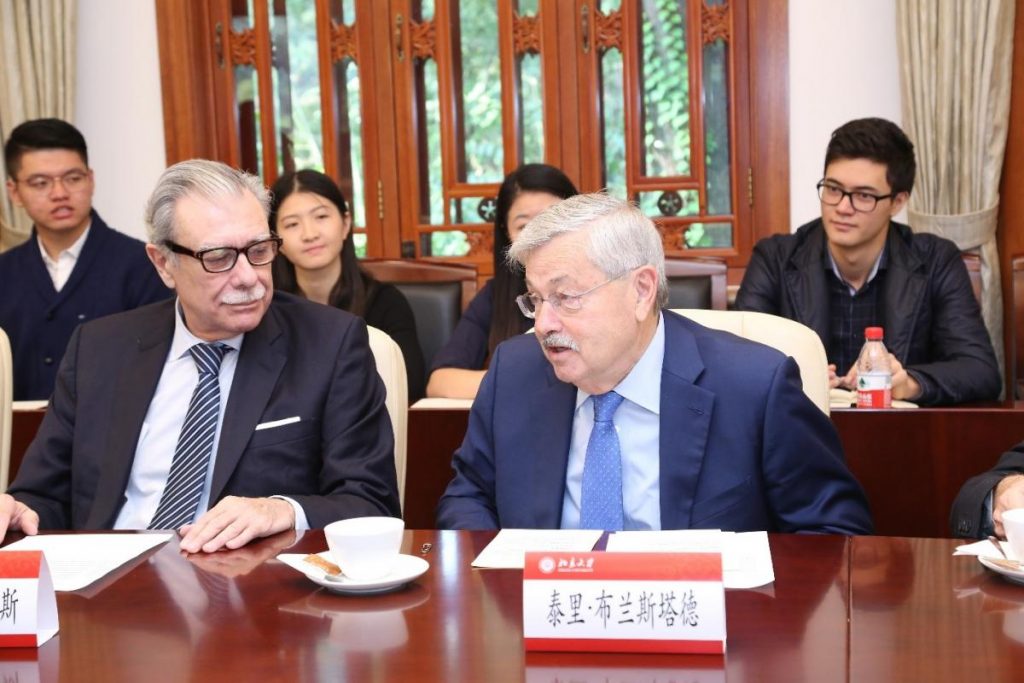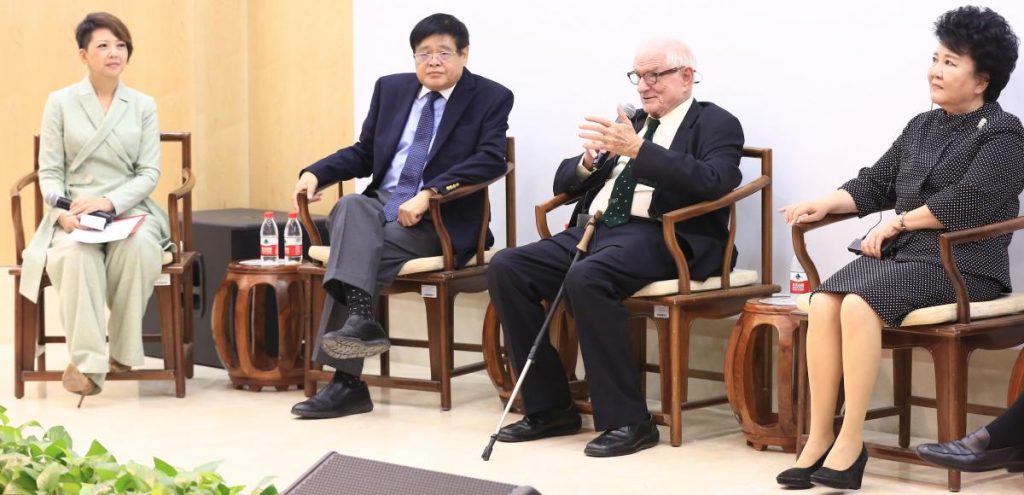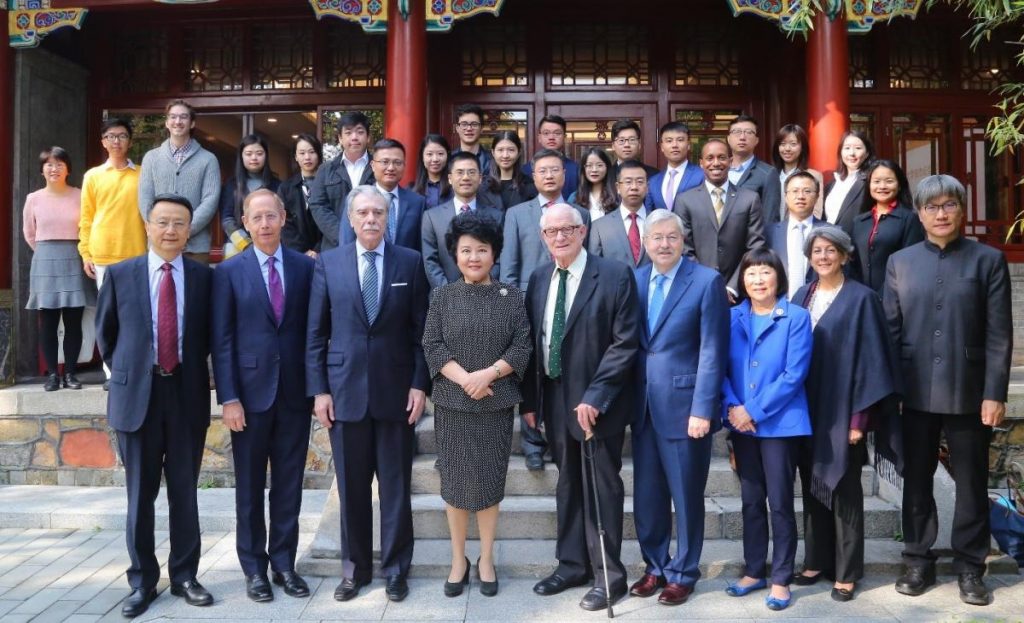The late Honorable “Sandy” Berger, former National Security Advisor to President Bill Clinton, demonstrated a strong commitment to balancing competition with collaboration between the United States and China, even when the obstacles seemed insurmountable. USCET believes that people-to-people ties have long lasting impact that can help build a more constructive bilateral relationship. USCET, therefore, has launched a new scholarship aimed at cultivating the very sort of US-China exchange that Sandy Berger fought for throughout his career – a fellowship that empowers young Chinese scholars to deepen the scope of their research into America, as well as its complex relationship with China. The Samuel R. ‘Sandy’ Berger Memorial Fellowship was inaugurated on October 18, 2019 at the prestigious Peking University.
Opening remarks were offered by the United States Ambassador to China Terry Branstad, Peking University’s Vice President Wang Bo, along with USCET Founding President Ambassador Julia Chang Bloch.
Ambassador Branstad noted that “long-standing exchanges” involving thousands of young scholars underpin the US-China relationship. Keynote addresses were given by Former Minister of Overseas Chinese Affairs at the China State Council, Qiu Yuanping, and Carlos Gutierrez, Chair of Albright Stonebridge Group and Former United States Secretary of Commerce.
Susan Berger sent a heartfelt letter to applaud the event, confirming for participants the importance of her late husband’s legacy of engaging China and expanding people-to-people ties across the Pacific. As Ambassador Bloch commented, “these Fellowships will encourage and support young Chinese scholars, whose study and research will carry on Sandy Berger’s vision for a more collaborative future in US-China relations.” Mr. Berger’s legacy truly resonates in such efforts to build mutual understanding even in challenging times.
PKU faculty and students were treated to a thoughtful exploration of Sandy Berger’s mission to integrate China into global governance, as perhaps best represented by his key role in pushing for Chinese membership in the World Trade Organization. A pragmatic man, Sandy Berger never denied the differences between the American and Chinese approaches to political or economic life, nor did he minimize the reality of US-China competition – Mr. Berger did, however, firmly believe that such differences must be matched with people-to-people dialogue and fruitful public diplomacy.
A keynote panel and two roundtable discussions followed the official ceremony, reflecting on 40 years of diplomatic ties between China and the US, as well as examining the present and future of this most important bilateral relationship. The participants were luminaries in US-China relations, including USCET Chairman Ambassador Nicholas Platt, who was part of the President Nixon team that prepared the ground for US-China diplomatic relations in 1972, eminent Chinese Americanist, Wang Jisi, President of the PKU Institute of International and Strategic Studies, Jia Qingguo, former dean of the School of International Studies at PKU, Wu Baiyi, Director of the Institute of American Studies of the Chinese Academy of Social Sciences, former US Consul General Ken Jarrett, Amy Celico, Principal of the Albright Stonebridge Group, Johns Hopkins University, and Nanjing University Center’s Gaye Christoffersen. Moderating the keynote panel was CGTN Anchor Tian Wei, who facilitated a robust and candid dialogue.
Central to the discussions was the theme that while strategic distrust confounds Chinese and American governments, there is tactical trust between organizations and individuals at the sub-national level. US-China tension should not be underestimated, but neither should the deep desire for cooperation by so many actors at the grassroots level. Rising competition need not be mutually exclusive with cooperation.
Participants lingered on the idea that trade conflicts must not spill over into all facets of US-China relations. As Ambassador Platt argued, the world’s most important bilateral relationship should not be “governed only by trade,” and it remains possible to accept the existence of some contradictions in policy while avoiding total decoupling. For Ambassador Bloch, this effort to prevent spillover could hardly be more vital. Though “government-to-government relations may fracture,” she noted that “people-to-people ties endure.” Education and cultural exchanges, business ties, and the Chinese diaspora are lent special roles as undercurrents of cooperation in this light.
USCET is excited that this new fellowship continues the legacy of dialogue with China even in the most difficult of times, epitomized by Sandy Berger. By reaching out to the next generation of China’s America experts, this Memorial Fellowship sends the message that people-to-people ties can weather even the most furious of storms.



